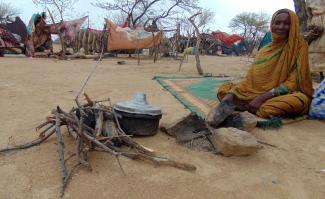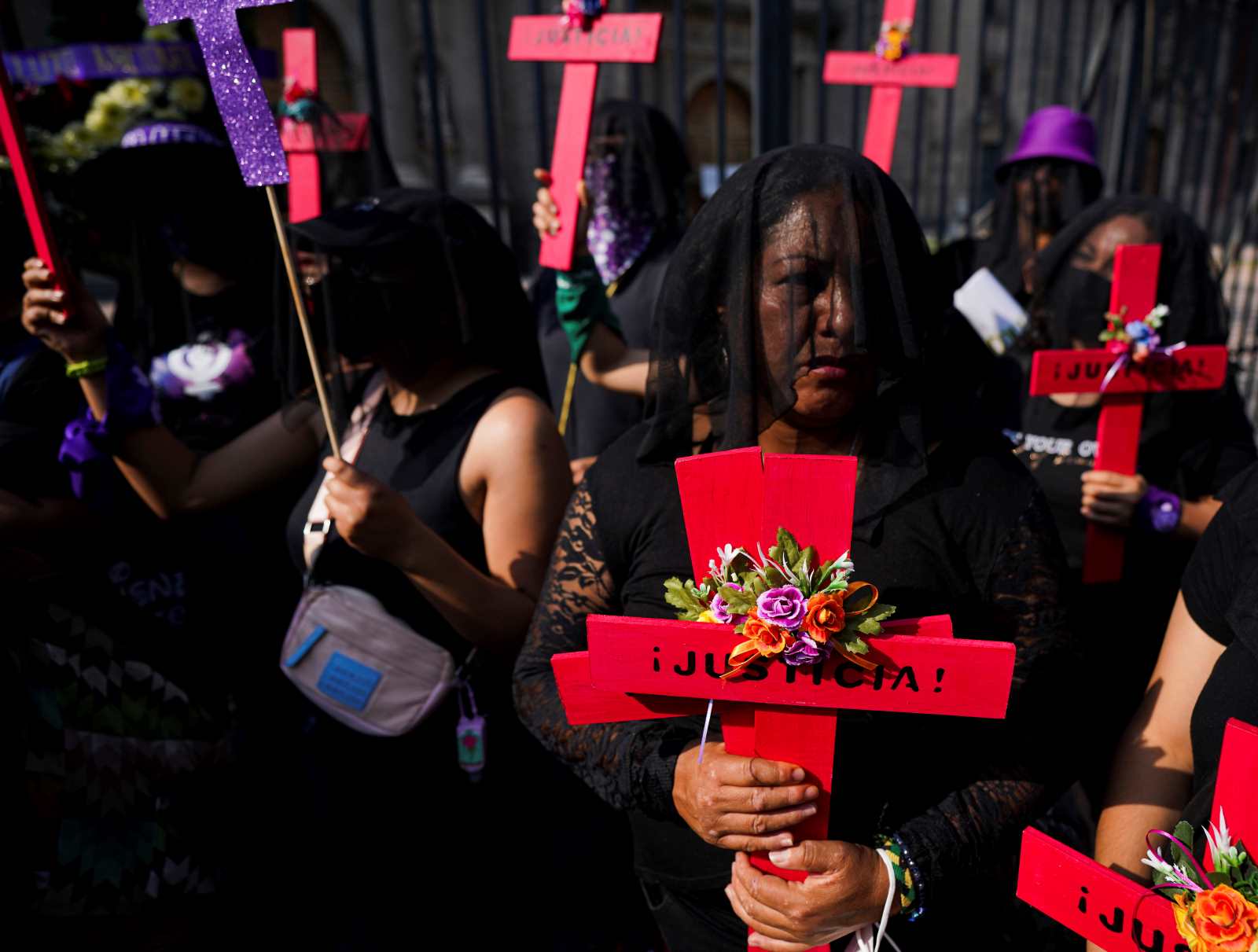Women in conflict
Men must be held accountable

Men have more opportunities than women and are exposed to fewer risks. This state of affairs has been normalised throughout history. It is reiterated around the world and becomes most evident in times of violence and war. However, those are precisely the times that show that men do not deserve their supremacy at all.
The victims who bear the greatest burden of violent conflict are women. Their needs, already widely ignored in peacetime, become even more neglected in war. Indeed, sexualised violence becomes a war strategy. Typically, men who claim that wars are fought to defend women’s rights become perpetrators too.
Women are more at risk of dying in war than men. That is true even though wars today are fought with sophisticated weapons such as guided missiles. Those weapons are not gender sensitive, and they are often used to attack civilian areas. According to UN Women, 90 % of current war casualties are civilians, the majority of whom are women and children. A century ago, 90 % of the casualties were military personnel.
When food becomes scarce during war, women are the first to suffer hunger. Unfortunately, moreover, it doesn’t take situations of strife to put women at risk – domestic violence around the world is a terrible and deadly phenomenon too.
Unsurprisingly, women hardly play a role in peace talks. Treaties are typically concluded without much female input. Women are underrepresented in peace-keeping operations, in the diplomatic procedures and in the documents that result from successful peace talks. Their role is often limited to secretarial tasks. A cursory search for pictures of peace agreements being signed will prove that women are largely absent.
Their exclusion is foolish. According to the Council on Foreign Relations (CFR), a US think tank, women’s participation both in the negotiation process and in peace-keeping operations increases the likelihood of war not flaring up again. If women and civil-society organisations are involved in peace talks, subsequent agreements are 64 % less likely to fail according to data from UN Women.
Women are needed for peace
Unless women are heard, the causes of conflict are not fully understood. Women must be at the table if all relevant information is to be taken into account. Their perspective, moreover, helps to understand the needs of communities. After all, they make up a little more than half of the world population. Their contributions help to better target development initiatives and peacebuilding.
Without women’s experience, ideas and knowledge, conflicts cannot be resolved in the long term. Accordingly, countries with strong gender equality are less prone to conflict. At the same time, these societies are more equal and inclusive in regard to issues like ethnicity, skin colour and faith.
There is reason to hope that these things are becoming increasingly clearer to male policymakers. The awareness for gender issues, after all, is growing. Indeed, the input of women in peace processes is slowly increasing.
While the growing emphasis on gender justice in foreign and development affairs is welcome, there is a risk of gender issues only being dealt with superficially. It is not enough to simply tick the right boxes. Proposing projects with a gender focus may be mere window dressing with an eye to getting more funds. Policymakers must ensure that women’s rights are not only trumpeted before funding decisions are taken. They must matter in implementation too. We need to move beyond the idea that a poster featuring strong women can eliminate gender inequality or that a single initiative’s token women will empower half the world’s population.
Intersectionality is important as well, but often overlooked. Many women are not only disadvantaged because of their gender. It is bizarre that white and privileged women often serve as examples of female empowerment. But it is not only about skin colour: Ursula von der Leyen, the president of the European Commission, and Śekha Hāsinā, the prime minister of Bangladesh, are the daughters of influential politicians and do not represent the majority of marginalised women.
Men are needed for the feminist agenda
Real support for women requires a commitment to lasting inclusion in all spheres of life. That is particularly important in peace processes and conflict prevention. However, related efforts cannot be left to women alone. We cannot expect the main victims to also be self-assured negotiators, peace brokers and healers.
It is common to state that gender justice is a task for society as a whole. This statement misses an important point. The marginalisation of women results from how society’s institutions operate. Women’s oppression is socially constructed. Those who hold power in these institutions are still predominantly men. We, the men, are thus the people who have done most to build this construct. Accordingly, we bear responsibility for deconstructing it too.
We men have an obligation to listen to women and to take their views seriously. When they tell us that they are being attacked or discriminated against, we have no right to ignore them or – even worse – blame them for their victimisation, as so often happens.
It is usually us who are responsible for the attacks on them, the systems that keep them down or the conflicts that destroy their lives. It is therefore our moral duty to help and support them as they need it. Anything else would mean that we stay complicit in violence.
Men must take responsibility for their actions. Moreover, we must recognise and openly address gender-based injustices. We have a duty to challenge social structures that have directly favoured us in all areas. By endorsing feminism and supporting feminist policies this way, we men can rise to our responsibility in achieving gender equality.
Fabio Andrés Díaz Pabón is a research fellow on Sustainable Development and the African 2063 agenda, hosted by the African Centre of Excellence for Inequality Research (ACEIR) of the University of Cape Town.
fabioandres.diazpabon@uct.ac.za













